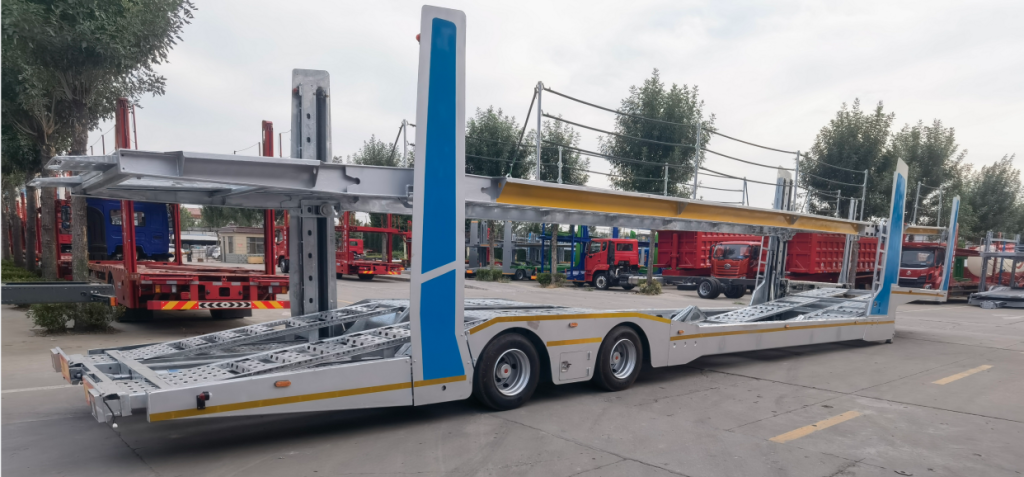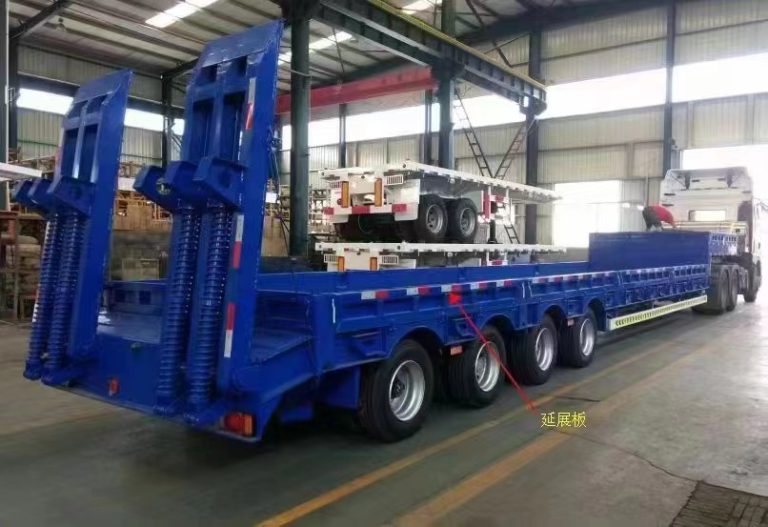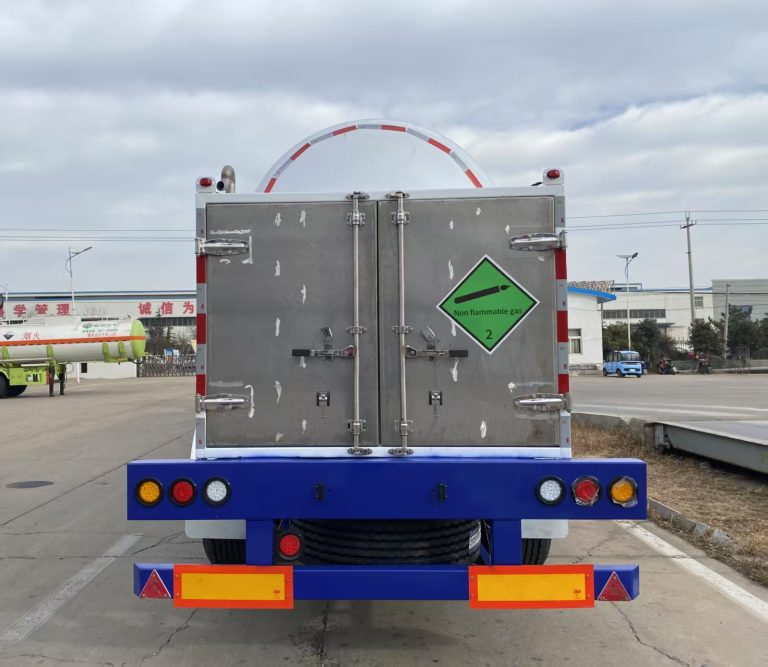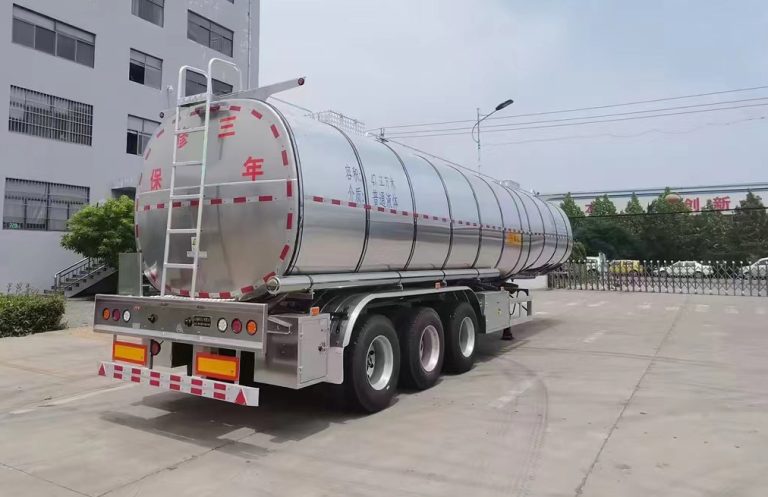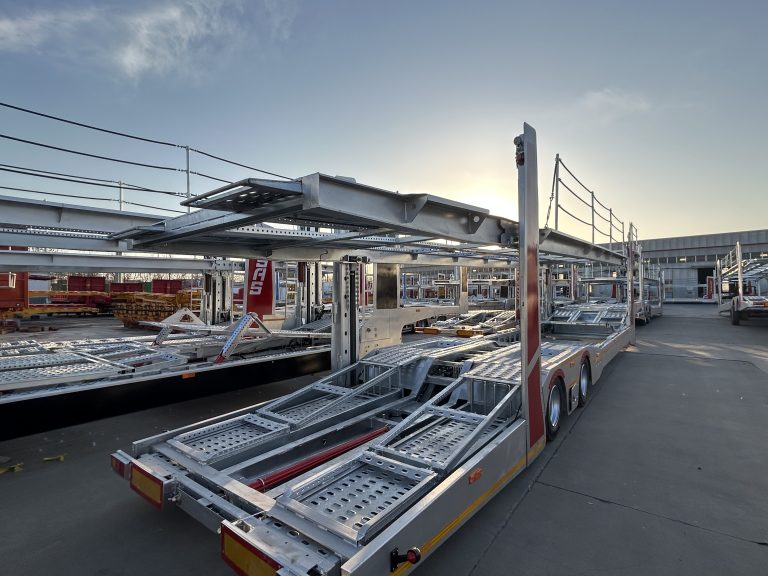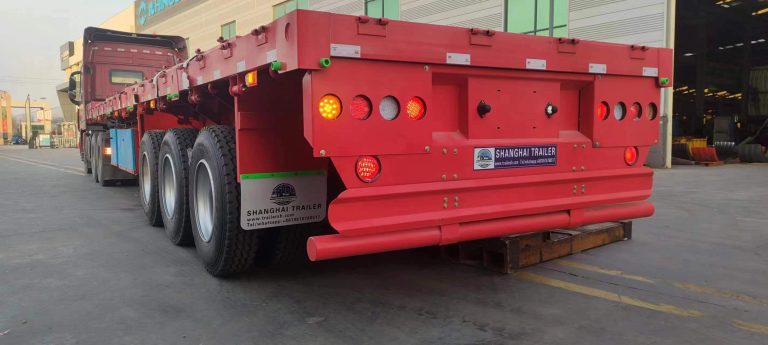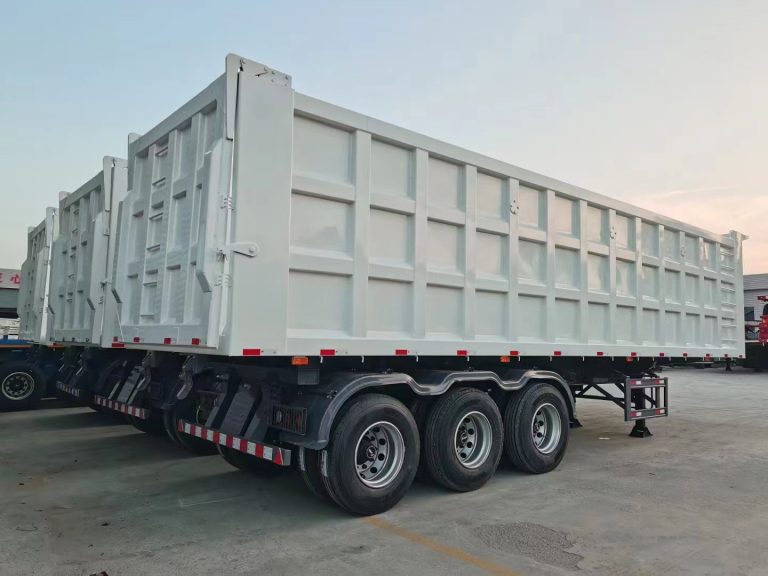Semi-trailer manufacturers teach you how to prevent semi-trailer tire blowouts. Regularly checking tire pressure is the key to preventing tire blowouts. Over or under tire pressure will increase the risk of tire blowouts. Excessive pressure will make the tire too hard and easy to burst when encountering uneven road conditions; while excessive pressure will increase the friction between the tire and the ground, causing overheating and wear. Therefore, drivers should regularly use a dedicated tire pressure gauge to check tire pressure to ensure that it is within the manufacturer’s range.
1.It is important to check tire pressure regularly. Perhaps we all know that tire pressure also changes with temperature changes. In winter, tire pressure needs to be sufficient. If the tire pressure is insufficient, it is likely to cause a blowout. Under normal circumstances, the probability of a flat tire blowout is higher. If the tire is still driving when it is deflated, the outer wall of the tire will be deformed. After driving for a long time, a lot of heat will be deposited in the internal structure of the tire, and the heat will then cause the standard air pressure of the internal structure of the tire to change, causing a blowout.
2.Expired tires cannot be used. Some car owners think that as long as the tires are not rotten, they can be used normally. In fact, this is not the case. Tires also have a service life. If the tires expire, they cannot be used normally. Under normal circumstances, the service life of tires is 2 to 3 years or more than 60,000 kilometers. Tires that have expired or are severely damaged should be replaced regularly.
Driving habits have a direct impact on the life of tires. Drivers should avoid driving behaviors such as sudden acceleration, sudden braking and sharp turns, and maintain stable driving. In addition, during driving, you should try to avoid potholes and obstacles on the road to reduce the impact on the tires.
